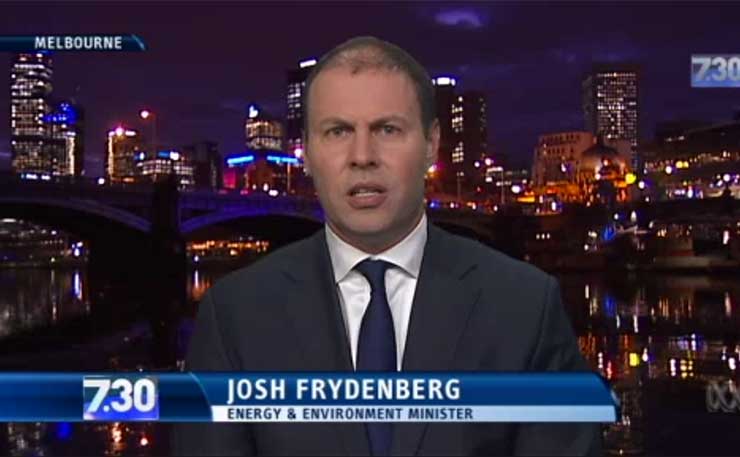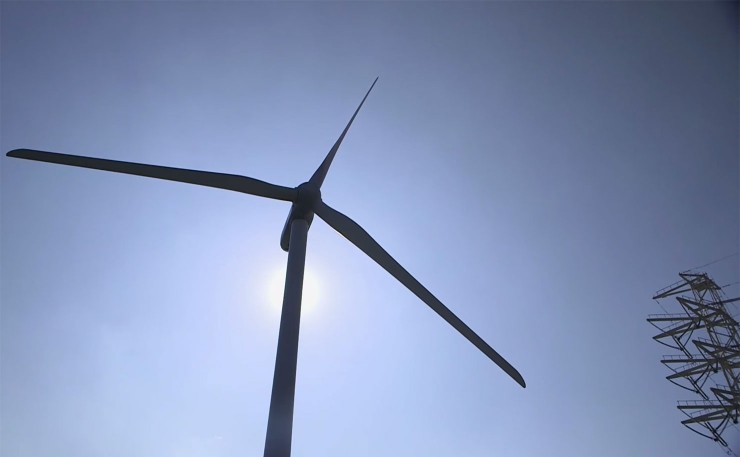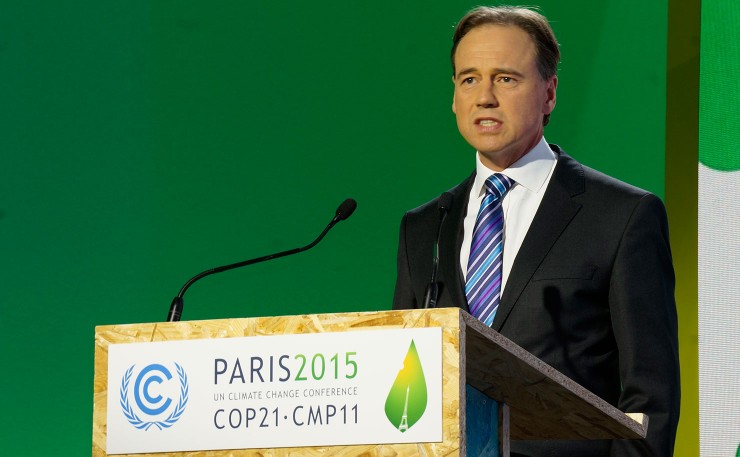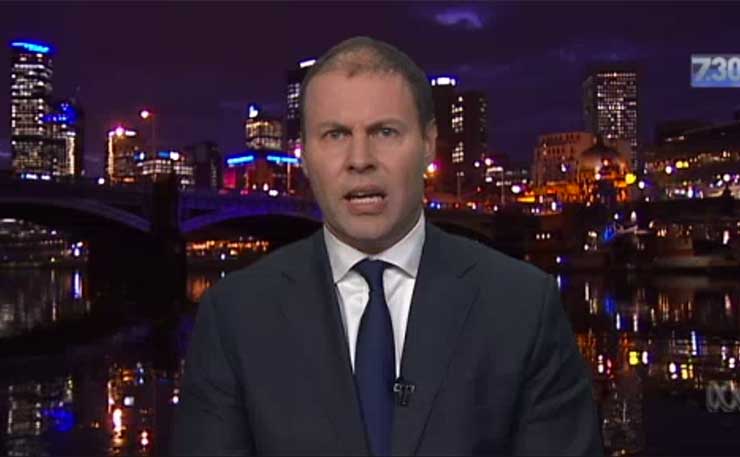The debate over what caused a massive blackout in South Australia rages on. Thom Mitchell takes up the fight.
Friday must have been awkward for Federal Environment and Energy Minister, Josh Frydenberg.
He was sitting across from his Labor counterparts, at a meeting of the Council of Australian Governments’ energy arm – and was no doubt asked to explain why the Coalition is campaigning against the state-based renewable energy schemes that it once ‘encouraged’.
Since a huge storm left South Australia without power last week, the Federal Government has been throwing shade at renewable energy; but from the very beginning, Frydenberg knew enough to realise that renewables weren’t to blame for the system-wide black out.
Nonetheless, the night the tempest hit, the Minister was talking down clean energy on the ABC.
He told the 7.30 Report that in light of the power outages, “questions are raised by the virtue of the increasing amount of renewables”. Yet in the same breath, he conceded that “South Australia lost its power due to the most extreme weather event there in half a century”.

When asked if it was fair to assume renewables were at least partially to blame, given they make up 41 per cent of South Australia’s electricity, Frydenberg’s answer implied they were. Even if only because he didn’t immediately make it clear they weren’t.
It was perfect timing, from the Government’s perspective.
Earlier that day, Frydenberg had already been busy bashing state-based renewable energy targets, telling Radio National that “Federal and State renewable energy targets being different does create a problem, because it skews investment in an inefficient way.”
So they were off and running. Prime Minister Malcolm Turnbull joined the fray the day after the blackout. Singing from the same song-sheet as Frydenberg, Turnbull presenting the natural disaster as a “wake-up call” for states with “unrealistic” renewable energy policies.
Without irony, the Prime Minister dismissed the more ambitious renewables targets of Labor states as a “political or ideological statement”.
Meanwhile, Deputy Prime Minister Barnaby Joyce exercised characteristically two-step logic. Wind energy “obviously wasn’t working” in South Australia, he said, “because they had a blackout”. It was a similar story from prominent anti-wind campaigner, Senator Nick Xenophon, One Nation Senator Malcolm Roberts, and much of the media.
Basically, the climate wars are back on, full-tilt.
The National Energy Market Operator offered some facts this week in an interim report. It makes no recommendations, and uses incomplete data – but the report does make it clear infrastructural damage from severe weather was the main cause of the failure, and not the high penetration of renewables in South Australia’s grid.

It paints a picture of the chaotic damage to infrastructure like transmission lines, and how these faults across the network increased the pressure on the state’s main interconnector, with Victoria – which overloaded, tripped the system, and caused the state-wide blackout.
The report does suggest there was a sudden loss of wind energy just before the system went down, but it’s still unclear what role if any that played in the failure. The important point is not the faults of renewables, but the intensity of the storm.
Yet the Coalition has been so keen to talk about renewable energy, and not the root cause of the failure – extreme weather of exactly the kind that climate change is exacerbating. Approached without ideology, the disastrous power outages in South Australia are more an argument for climate action, rather than against it.
The South Australian Premier, Jay Weatherill, has always maintained that renewables were not the cause of the blackout, and yesterday he accused the Prime Minister of “politicking” and using the emergency to “lecture South Australians about the dangers of renewable energy”.
On Wednesday, the Deputy Chief Minister of the Australian Capital Territory, Simon Corbell, likewise urged the Federal Government to get its act together. Corbell pointed out that last December, Greg Hunt – Frydenberg’s predecessors as Environment Minister – was actually encouraging state-based action.
At the Paris climate talks, Hunt said: “I have encouraged the states that if they want to do something extra, (they should) apply reverse auctions to the renewable energy target in the way the Australian Capital Territory has done.”
Now they’re being attacked for doing just that.

The ACT is well on its way to a 100 per cent target by 2020, and Victoria is adopting a similar ‘reverse auction’ model to achieve targets of 25 per cent by 2020, and 40 per cent by 2025.
In Queensland and the Northern Territory, a process is underway to determine how those jurisdictions can reach targets of 50 per cent renewable energy by 2030, to bring them into line with Federal Labor policy.
Ironically, this growth of state targets was largely set in train by the Abbott Government’s attacks on the national Renewable Energy Target – which the Coalition cut back to “a real 20 per cent” renewable energy by 2020 last year, after failing in their original goal of abolishing it altogether.
It’s a legacy Malcolm Turnbull has done nothing to reverse. In fact, we learned in a Senate Inquiry last week that the Coalition has undertaken no modelling at all to determine whether existing policies can deliver the target Turnbull himself took to Paris. All the independent analysis suggests the Coalition needs to do much more to meet even those low-bar emission reduction targets.
Now that Malcolm Turnbull has decided to emulate Tony Abbott – not only in his climate targets, and policies, but even in running cynical fact-free attacks on the industry – it actually feels like the states are the only ’realistic’ hope for action on climate change after all.
* You can read an alternative take on the SA blackouts here, from New Matilda columnist Geoff Russell.
Donate To New Matilda
New Matilda is a small, independent media outlet. We survive through reader contributions, and never losing a lawsuit. If you got something from this article, giving something back helps us to continue speaking truth to power. Every little bit counts.





